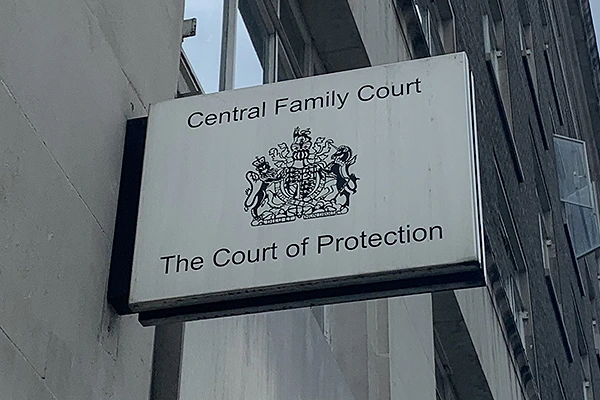
A Welsh white leopard?
Alex Ruck Keene KC (Hon) looks at a recent case where litigation capacity in the absence of subject-matter capacity was revisited.
February 18, 2026
A Welsh white leopard?
News
Features

Adult social care priorities for local authorities: 2026 to 2027
January 22, 2026
Emma Watt looks at the Government's expectations for local government when it comes to delivering adult social care in 2026.

Personal welfare deputies, principle and pragmatism
January 21, 2026
Alex Ruck Keene KC (Hon) considers a recent Court of Protection ruling on the appointment of personal welfare deputies.

Top-up fees: a growing risk for councils
December 22, 2025
Councils need to be careful to ensure that they handle top-up fees for care correctly, writes Lisa Morgan.

Hoarding and learning from inquests – safeguarding to prevent tragic outcomes
December 12, 2025
Hoarding is a recognised disorder where someone acquires an excessive number of items and stores them in a chaotic manner, usually resulting in unmanageable amounts of clutter. George Riach, Julia Jones, Kate Hicks and Matthew Watts consider the importance of the wide scale issue for local authorities, housing providers and health and care providers. They also offer some practical recommendations…

Natural justice and costs in the Court of Protection
Dec 12, 2025

Self-neglect and capacity
Dec 04, 2025

Fact finding in the Court of Protection
Nov 20, 2025

Independent Social Workers and judicial review
Oct 22, 2025
The Welsh Language and the Court of Protection
Oct 17, 2025
Revisiting Cheshire West
Oct 10, 2025
Transparency in the Court of Protection
Oct 03, 2025
Tracking down the abducted ‘P’
Aug 21, 2025
Court of Protection case update: July 2025
Jul 18, 2025
The final say
Jun 19, 2025
Sponsored articles
How hair strand testing should be instructed for family court proceedings
For years, FTS, a drug, alcohol and DNA lab in Yorkshire, has been advocating for an end to the use of Society of Hair Testing (SoHT)…
How Finders International Supports Council Officers
Councils across the UK face a growing number of complex cases involving deceased individuals with no known next of kin, unclaimed estates,…
Webinars
Deputyship Surgery: Court of Protection Updates & Practical Guidance
Dave Lockwood, of Finders Development Hub, hosts a webinar addressing common questions from Social Care practitioners, exploring recent CoP developments.

































































